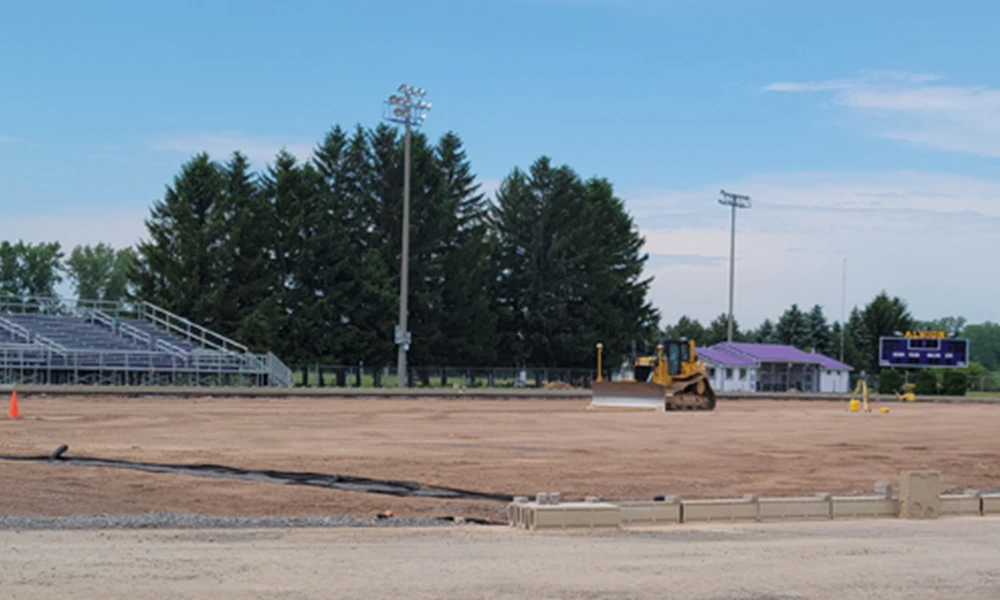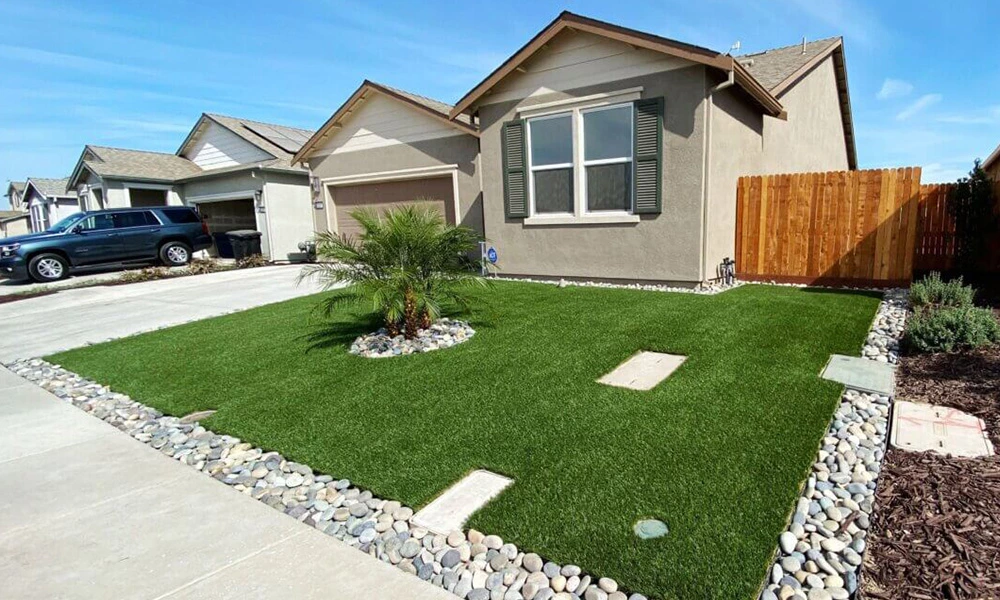What to prepare before starting a football field project?
As one of the world's most popular sports, football is more than just a competitive sport; it's also a cultural activity that unites people. Whether in city centers or surrounding communities, there's a strong demand for high-quality football fields. With the development of the sports industry and the widespread adoption of fitness initiatives, the construction and operation of football fields has become a promising project for many investors and businesses.
Why invest in football field projects?
Strong market demand: A large community of football enthusiasts creates a stable demand for football fields year-round, from youth training to amateur tournaments to professional matches.
Diversified income: Beyond daily rentals, football fields can host events, training sessions, sports festivals, and even generate revenue through commercial development (restaurants, fitness centers, and retail).
Positive social impact: Investing in football fields helps promote healthy lifestyles in the community, provides a platform for youth sports, and enhances the city's sports scene.
Government policy support: Many regions actively promote the development of the sports industry, offering construction subsidies, tax incentives, and other policy support.
Long-term asset value: High-quality football fields have the potential to maintain and appreciate in value over many years of operation, making them a long-term investment with both economic and social benefits.

What do you need to prepare before starting a football field project?
1. Market research and demand analysis
First, it's crucial to clarify the core purpose of the sports field: is it a professional-grade venue for professional competitions, a training ground for school instruction, a community fitness center, or a multi-purpose field for commercial operation? Different positioning corresponds to different construction standards. For example, professional sports fields require fixed spectator seating, media centers, and VIP boxes, while community sports fields prioritize convenience and safety. Simultaneously, it's necessary to research the needs of the target users, including the frequency of exercise among surrounding residents, the market potential for corporate team building/youth training, and policy support for event hosting, laying the foundation for subsequent operational models.
Analyzing the local football culture, the number of fans, potential user groups, and existing competitors can help you determine the feasibility and market positioning of the project. In addition, it is necessary to investigate the needs of target customers, such as venue rental, membership services, training courses, etc., to optimize business strategies.
2. Site selection and planning
Choosing the right venue is crucial to the success of a football stadium. It is essential to ensure the venue complies with local building and land use regulations to avoid legal disputes.
-
Accessibility: The venue should be close to main city roads and public transportation stops; parking facilities should be provided, with the number of spaces determined by the stadium's size for easy access;
-
Natural Conditions: The venue should avoid low-lying, flood-prone areas, ensuring a flat terrain to reduce earthwork costs; sunlight and wind direction should be suitable for athletic performance, avoiding direct sunlight that could negatively impact the game;
-
Infrastructure Support: The venue should have a stable supply of water and electricity for stadium lighting and irrigation systems; a sewage system for wastewater disposal from changing rooms and restrooms; and a communication network to meet the needs of live broadcasting and monitoring of matches.
3. Laws, regulations and compliance
Understanding and complying with local laws and regulations is an important guarantee for the smooth progress of the project. It is necessary to apply for documents such as land use permits, building permits, environmental assessments, and ensure that they meet the safety standards of government departments. In addition, understand tax policies, operating permits, and relevant industry regulations to avoid legal obstacles to later operations.
4. Budgeting and Fund Raising
Football field projects involve a large amount of capital investment, so detailed budget planning is essential. The budget should cover land costs, construction costs, equipment purchases, labor costs, operating funds, etc. Financing methods can include self-raised funds, bank loans, investor financing or government subsidies, etc., to ensure the stability of the capital chain.
5. Recruiting and training teams
A successful football field requires a professional management team, including field maintenance personnel, coaches, security personnel, customer service, etc. Recruit and train relevant personnel in advance to ensure that they have the necessary professional knowledge and service capabilities to improve the operational efficiency and customer satisfaction of the football field.
Selecting a high-quality turf supplier, such as UNIGRAA, is crucial. They offer convenient and efficient one-stop solutions for turf, lighting systems, and other related services. When selecting turf, review sample quality and delivery timelines, and sign a formal purchase contract.
6. Equipment and supplier selection
Select high-quality football field equipment and facility suppliers to ensure the durability and safety of the field. Key equipment includes artificial turf or natural turf, goals, field lighting systems, locker room facilities, etc. Work with reliable suppliers to ensure that the products meet international quality standards and obtain good after-sales service.
7. Safety measures and insurance planning
The safety of the football field is crucial, and a comprehensive safety plan must be formulated, including emergency exits, fire protection facilities, security systems, etc. In addition, in order to reduce operational risks, it is recommended to purchase comprehensive insurance, including venue liability insurance, property insurance and accident insurance, to ensure investment security.

8. Operation and promotion plan
The success of a football field depends not only on the quality of construction, but also on subsequent operation and marketing. Develop a detailed operation plan, including membership system, competition activities, venue rental, etc. Use social media, offline promotion, cooperative sponsorship and other methods to increase visibility and attract more customers.
9. Continuous maintenance and upgrade
The football field needs regular maintenance during operation, including lawn trimming, equipment inspection, venue cleaning, etc. In addition, as market demand changes, you can consider upgrading facilities, such as adding intelligent lighting systems, expanding spectator seats, etc., to enhance user experience.
10. Opening and long-term development planning
After completing all preparations, formulate a grand opening plan to attract potential customers and partners. In terms of long-term development, you can consider expanding related businesses, such as hosting events, providing training courses, and developing clubs, to ensure the sustainable operation and profit growth of the football field.
Risk Assessment and Contingency Plan
Before project commencement, various risks must be identified, and countermeasures developed to reduce the probability of losses.
1. Risk Identification
Engineering Risks: Geological issues (e.g., sudden groundwater inrush, soft soil foundation), construction delays (supplier delivery delays, weather impacts), substandard quality (improper lawn installation, drainage system malfunctions);
Policy Risks: Land use planning adjustments, changes in approval processes, cancellation of subsidy policies;
Operational Risks: Insufficient customer traffic later, maintenance cost overruns, intensified competition from surrounding areas.
2. Contingency Plan and Safeguards
For engineering risks, develop alternative construction plans (e.g., alternative suppliers, rainy season construction schedules);
For policy risks, maintain regular communication with relevant authorities and adjust plans promptly; allocate insurance products such as construction insurance and public liability insurance to transfer the risk of unexpected losses.
Final Pre-Construction Checklist
Before construction begins, please conduct a final checklist to confirm the following:
• Have all necessary government approvals (planning, construction, environmental impact assessment, fire safety, etc.) been obtained in original form?
• Have the construction drawings been reviewed and stamped with the approval seal?
• Has a reliable payment plan been established for construction funds as stipulated in the contract?
• Have the general contracting agreement and key professional subcontracting agreements been signed?
• Has a supervision unit been appointed and commenced operations on site?
• Has the site been prepared with "three connections and one leveling" (water, electricity, road access, and site leveling)?
• Has the first site meeting been held, and have the owner, design, construction, and supervision parties reached a consensus on the objectives, plans, and procedures?
• Has the project commencement report been approved?
A football field project is more than just a sports facility; it's a long-term investment that combines commercial value with social responsibility. Through thorough early research and planning, reasonable cost control, and a clear operational model, investors can not only reap stable financial returns but also promote local sports culture and community development. A high-standard football field is a bridge connecting the passion of sports with business opportunities.







